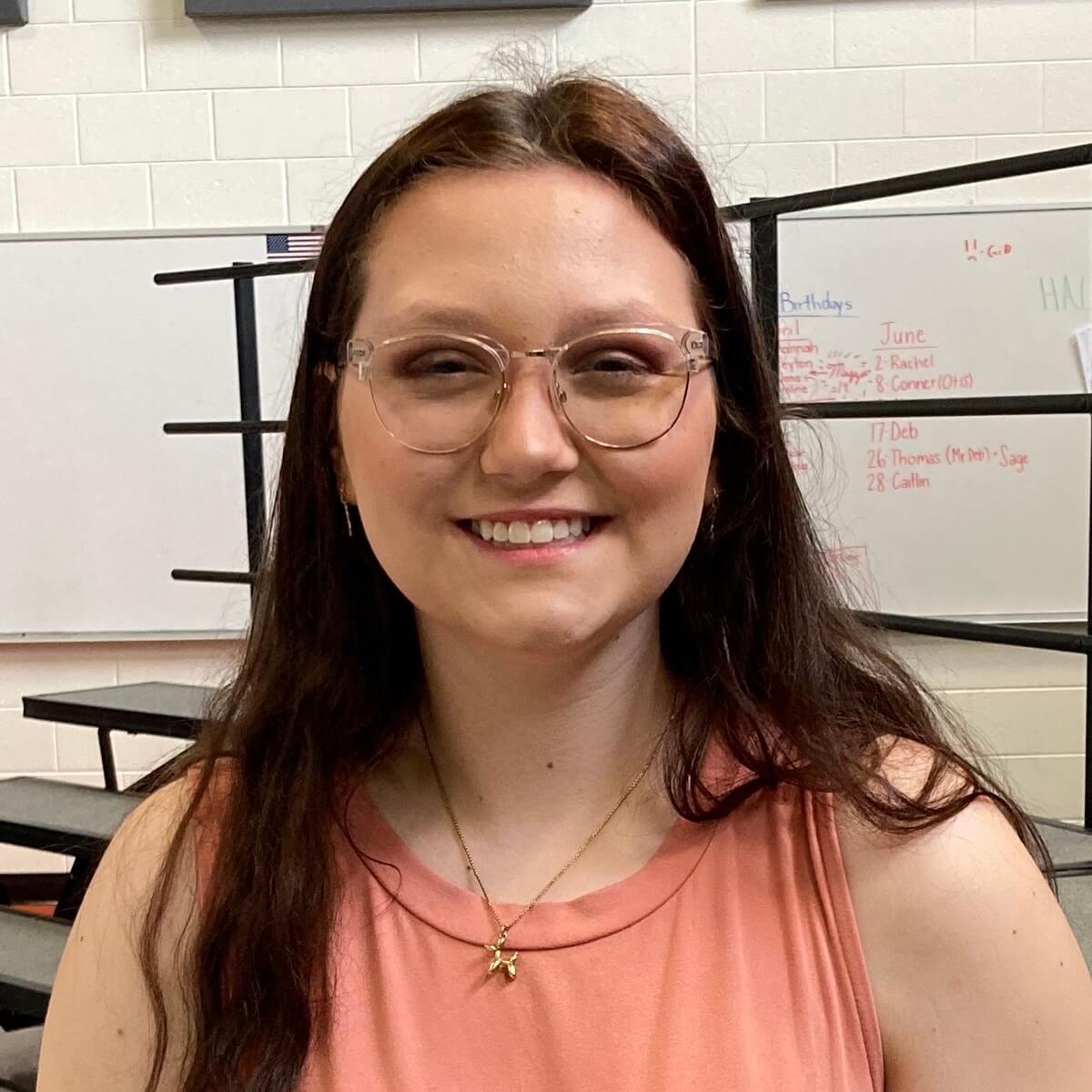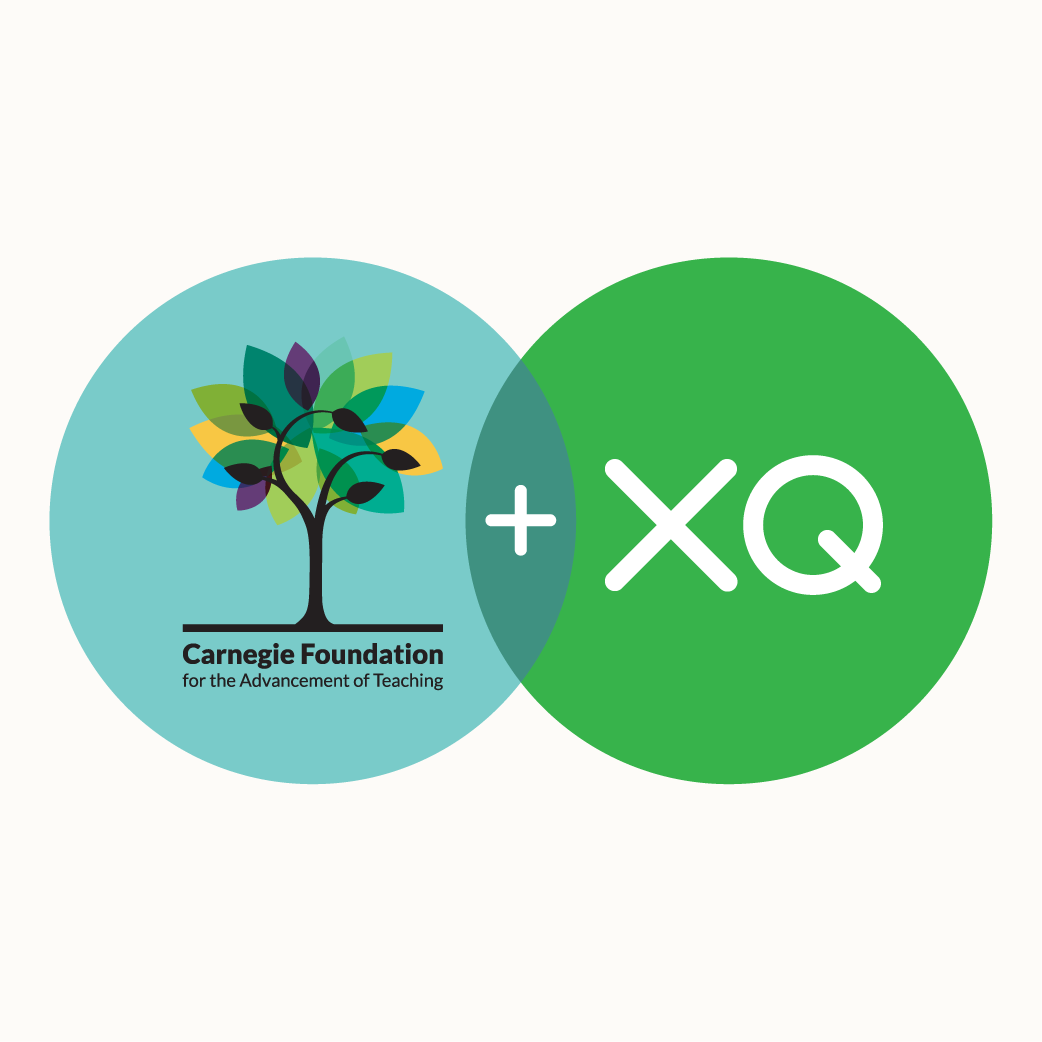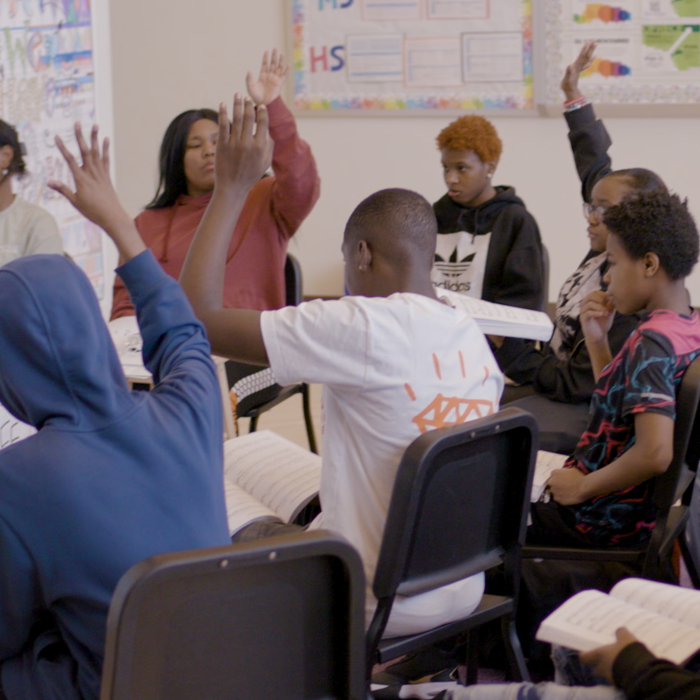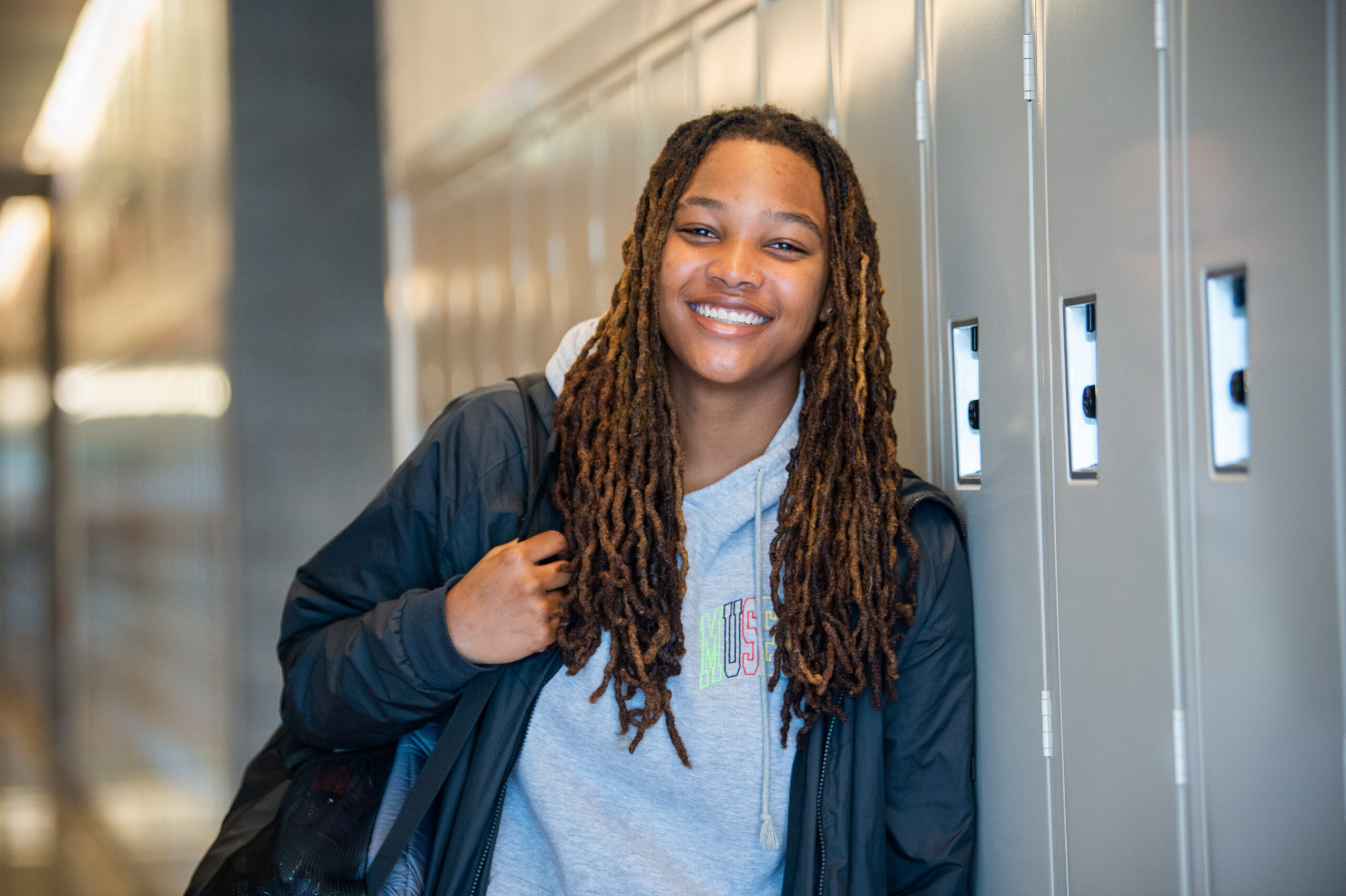Elizabethton High School
Elizabethton, Tennessee
A vision for the future of high school—designed by students, for students.
Elizabethton High School’s journey with XQ began when a sociology class used the XQ Super School competition as an opportunity to design a more student-centered school focused on community improvement and entrepreneurship. It was an ambitious plan. Elizabethton High School has about 860 students. It’s the only high school in its rural district located in northeast Tennessee—a region hit hard by the opioid epidemic and struggling to rebuild its local economy. But the students’ ideas sparked a lasting change.

Starting with two small pilot courses in 2017, Elizabethton has gradually adopted more project-based learning (PBL) classes. Designed by students, for students, Elizabethton High School now retains the best traditions of a comprehensive high school—with its football team, marching band, and clubs—while also providing a new model for high school that encourages students to play a much more active role in their learning.
Project-based learning isn’t used in every class yet, but students and teachers have taken it in impressive directions. Elizabethton’s students cracked cold cases from the 1980s, leading the authorities to identify the suspect in a series of murders. Their work became the subject of iHeart radio’s true-crime podcast series “Murder 101.” In another sociology class about wrongful convictions, students researched a childcare provider who’d been sentenced to murder for the death of a baby. They examined medical evidence and concluded the child’s death wasn’t her fault. Then, they wrote to authorities arguing for her release from a California prison (she was denied before she was later given clemency during COVID). In a completely different example of PBL, students wrote children’s storybooks developed in College Prep English.
Elizabethton students love exploring their community’s rich history through media. One group won an NPR podcast challenge with an unusual story about a local circus elephant killed over a century ago. EHS students also won a national 2022 journalism challenge with a video investigation of why their school has no windows and an audio report about how to make school more engaging.
Design Principles in Action
Learn how Elizabethton High School applies these XQ Design Principles to sustain student success:
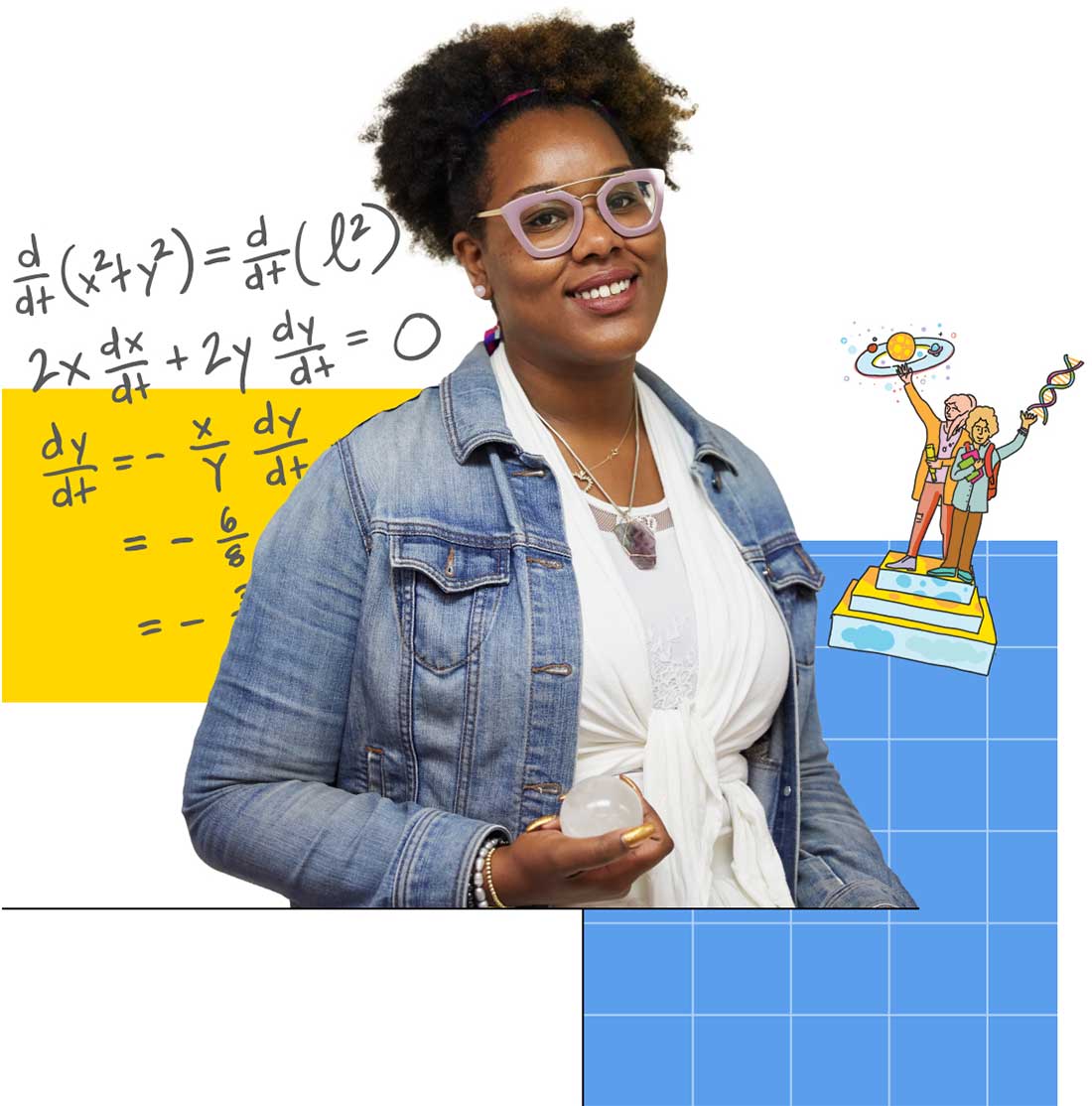
Strong mission and culture
Educators at Elizabethton High School (EHS) believe that when students are invested in their community, they will create a bright future and make positive contributions anywhere. The goal is to ensure they graduate ready for college, career, and whatever their future holds by giving them a strong sense of belonging. “Our community believes in progress,” assistant principal Sheri Nelson said, adding that progress needs to come to the community because “they don’t want our students to go somewhere else.”
Meaningful, engaged learning
Teachers at EHS are encouraged to create collaborative, inquiry-based projects as part of their approach to rethinking high school. An integrated English and U.S. history course led to students making podcasts preserving veterans’ stories. For a genetics project, students selected genetic diseases and conditions to study, then interviewed researchers, teachers, health professionals, and those affected by these conditions. They created infographics, incorporating technology like QR codes, to share their research. The infographic posters were printed and displayed in the science wing to inform others about genetic conditions.
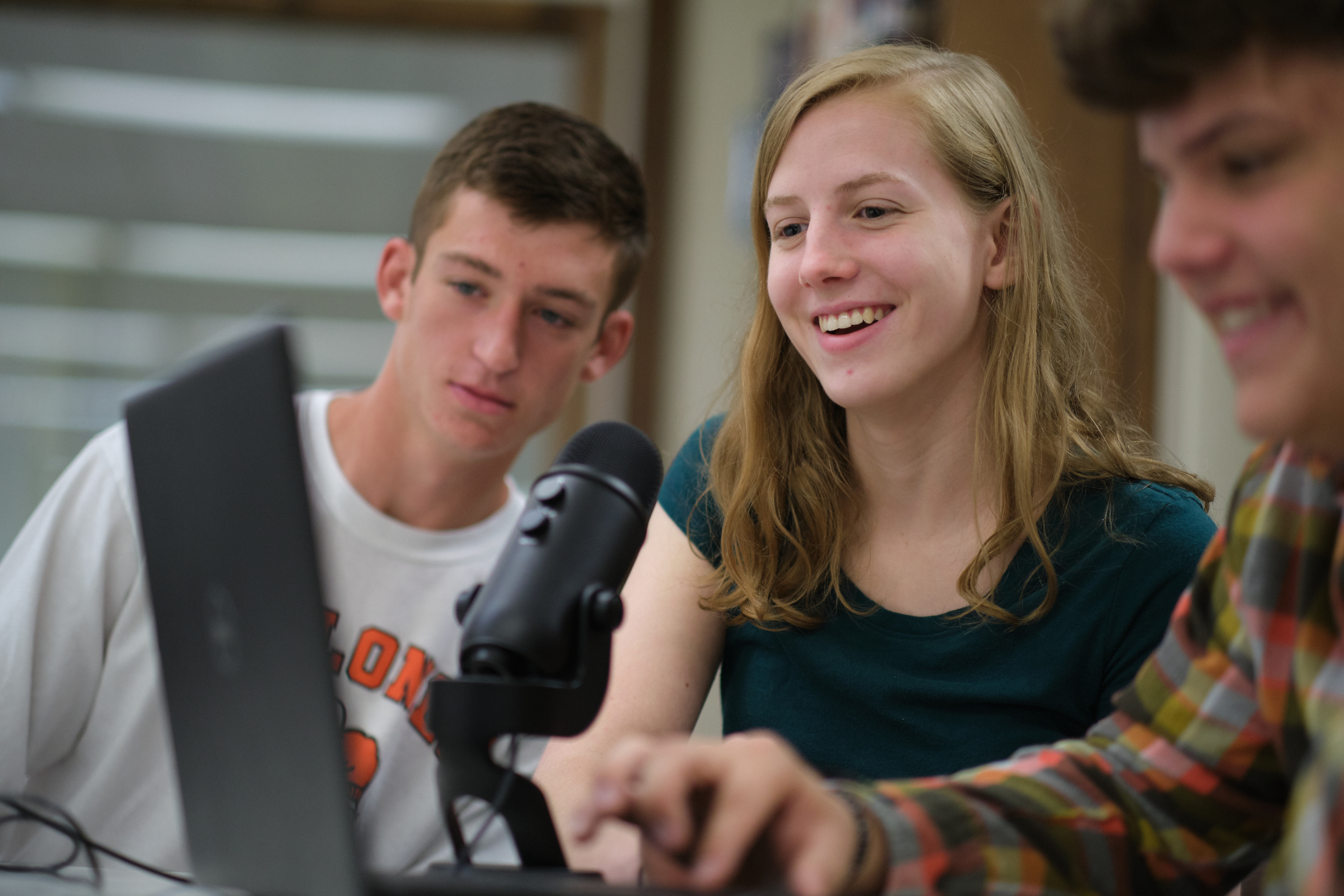
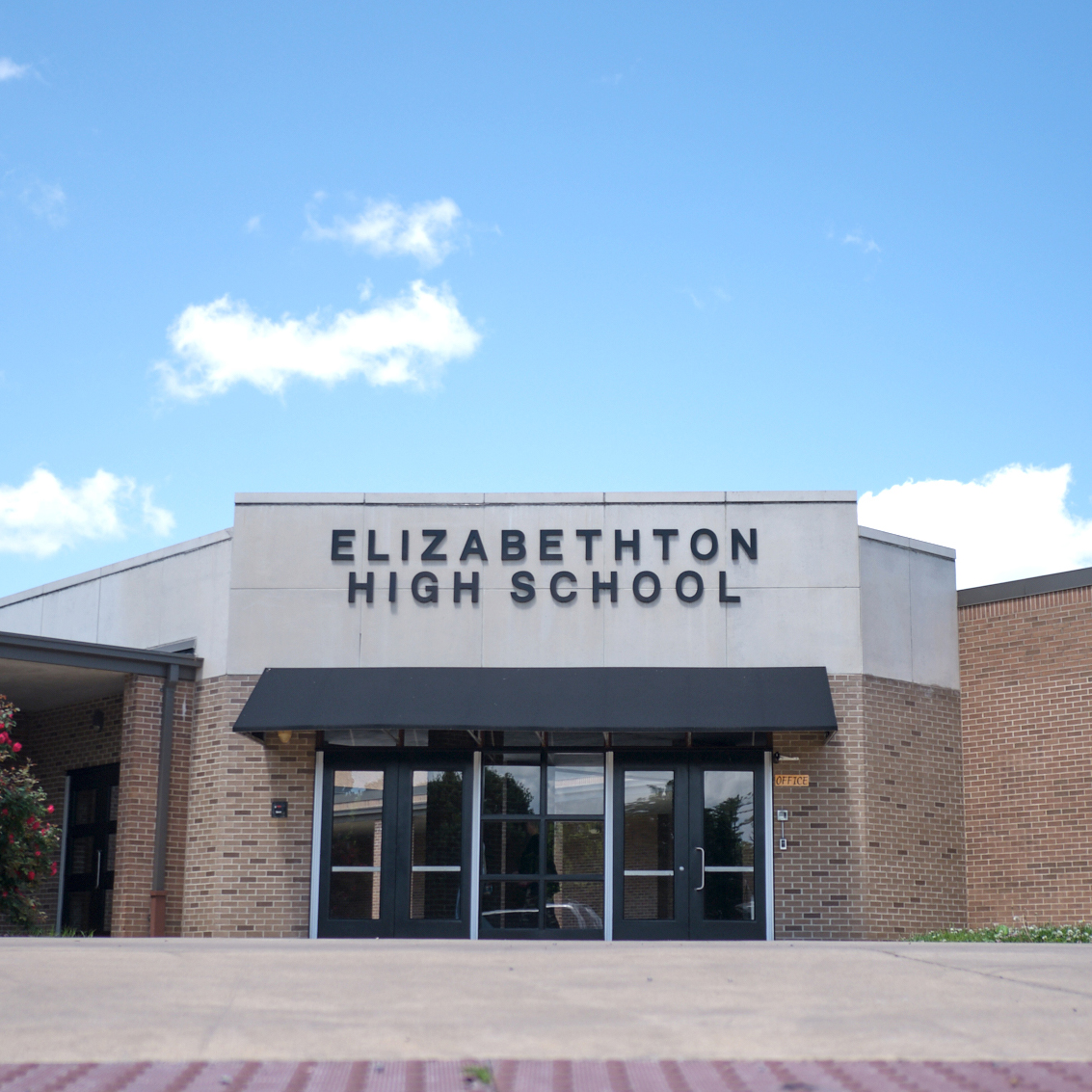
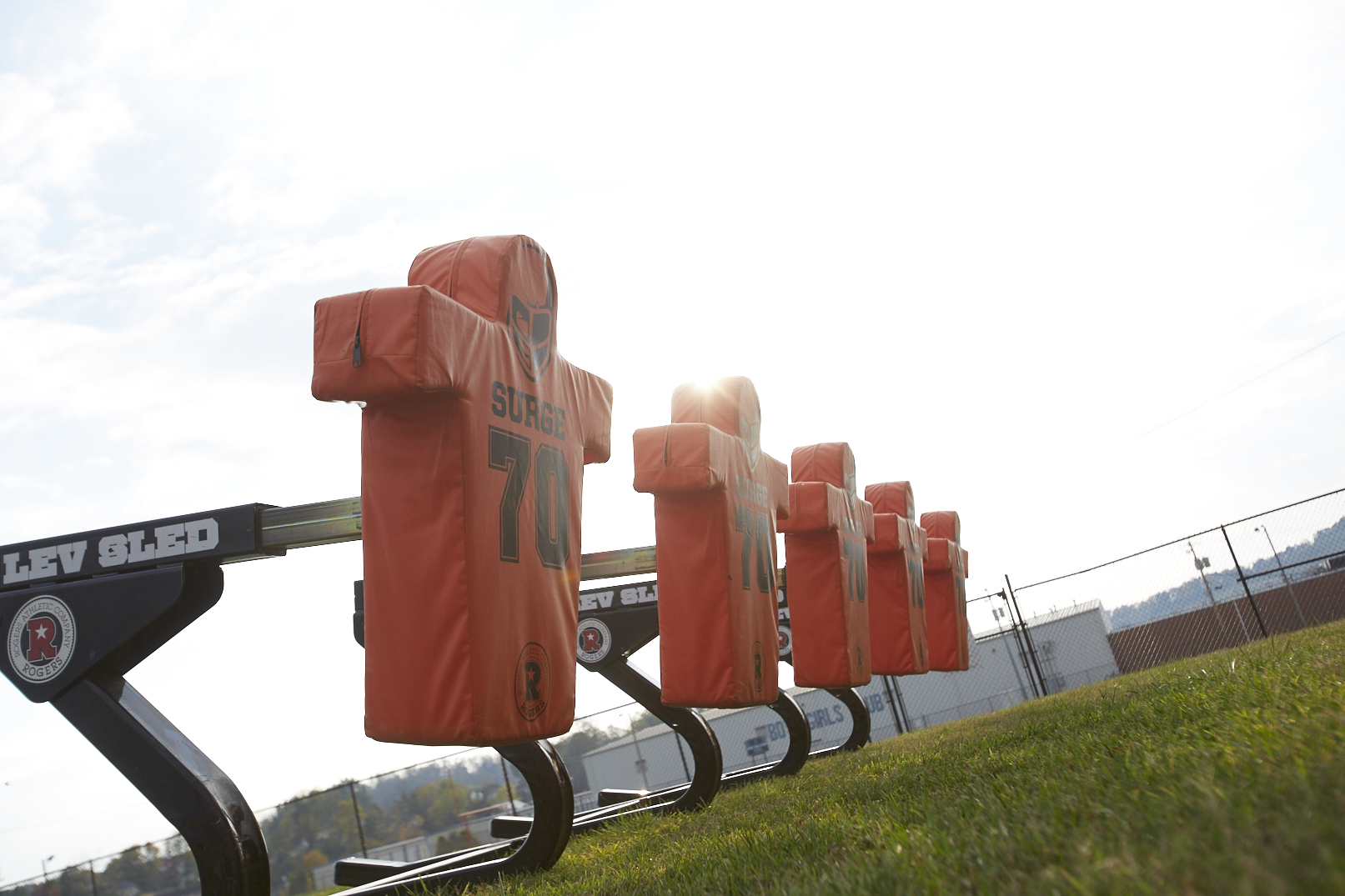
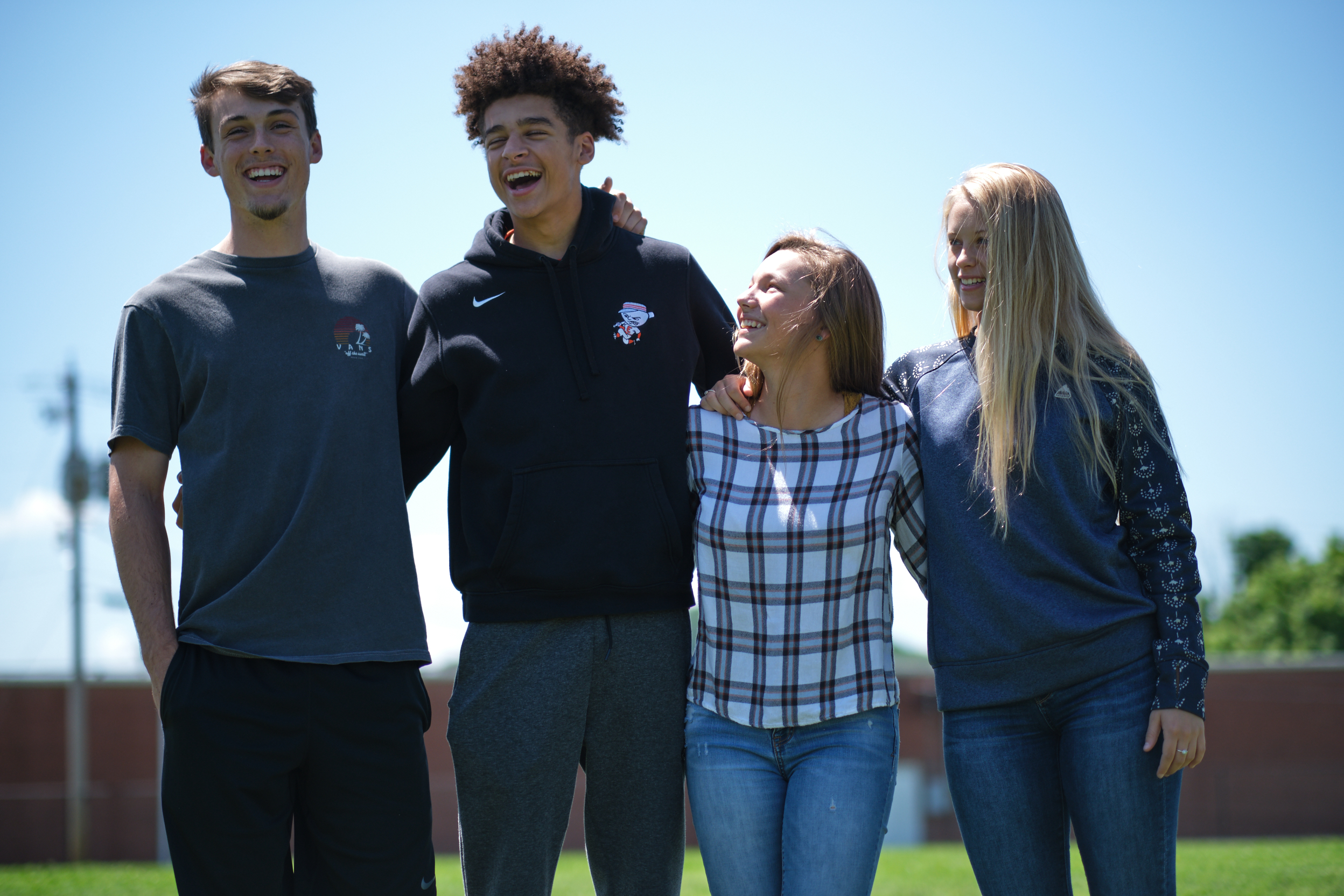
Caring, trusting relationships
EHS educators intentionally show students what is possible—beyond the possibilities they may have initially imagined for themselves—and then help them build the knowledge and skills necessary to take advantage of those expanded opportunities. Librarian Dustin Hensley builds relationships with students by asking them what they like to read, encouraging even reluctant readers to feel more comfortable—which can lead to success in their classes. “This is just the place where you can come and learn, and I will help guide you to what you’re wanting to learn,” he explained. Hensley was named one of Library Journal’s Movers and Shakers in 2021.
Youth voice and choice
EHS is committed to not only listening to students but to giving them a say in their educational experience. The school started a course on teaching as a profession in response to student requests. The school has a student liaison to the local school board and a Cyclone Student Center, designed at the request of students to make the former main office an inviting place for getting information. EHS added two college and career counselors to the Center after students expressed a need for more help. In response to students’ desire to start a business, there’s now a coffee shop in the building designed and run by students. Staff also adjusted the school’s schedule to create a fourth-period elective block for trying things suggested by students. For example, a teacher who couldn’t figure out how to make an idea for a project about poisons fit into chemistry class managed to make it work as an investigation in an interdisciplinary elective class that incorporated biochemistry, ecology, history, and ethics.
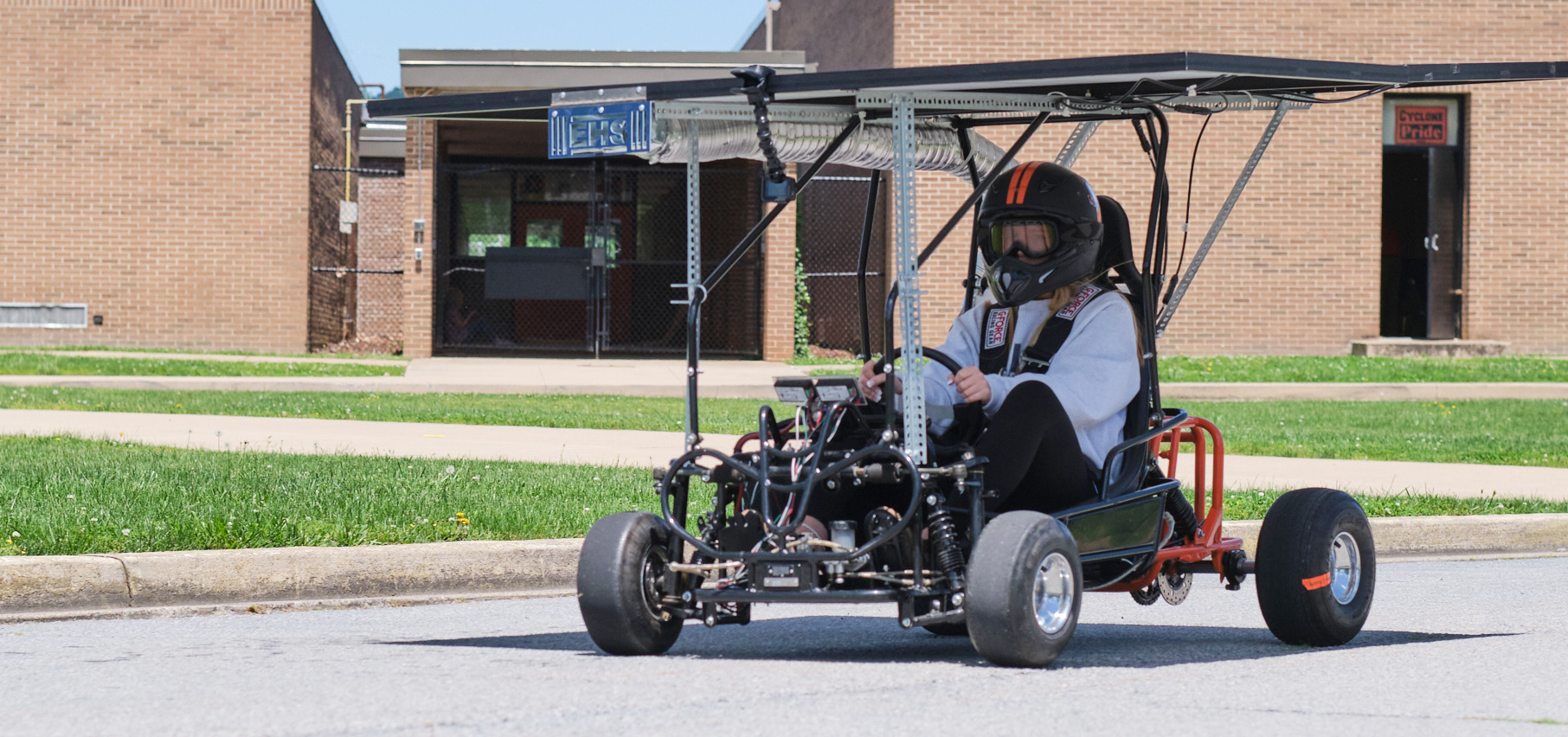
Smart use of time, space, and tech
Elizabethton High School has dual enrollment classes with six postsecondary institutions in the region, including East Tennessee State University and Tusculum University. EHS also has a thriving Career and Technical Education program. The school’s CTE classes, such as health science, are very popular because students can get certifications. EHS also has a state-of-the-art virtual and augmented reality lab where students can explore how industries use these technologies.
Community partnerships
EHS students stay in close connection with their community as they plan, execute and celebrate their projects. These include placements at a local elementary school for students learning about the teaching profession, an art show to raise funds for a local nonprofit for children in the child welfare system, growing plants in science classes for the Keep Carter County Beautiful free plant drive, and so many more. Students present and display their projects to the Community Partnership Advisory Group and to panels of community members teachers call to their classes throughout the year. These presentations encourage the ongoing involvement of partners who sponsor new projects, serve on judging panels, and mentor students as industry experts. In 2021, the principal hired a community coordinator to strengthen partnerships with local businesses. This led to the Community Partnership Advisory Group, which meets monthly—so local businesses and higher education institutions stay connected to students exploring their future.
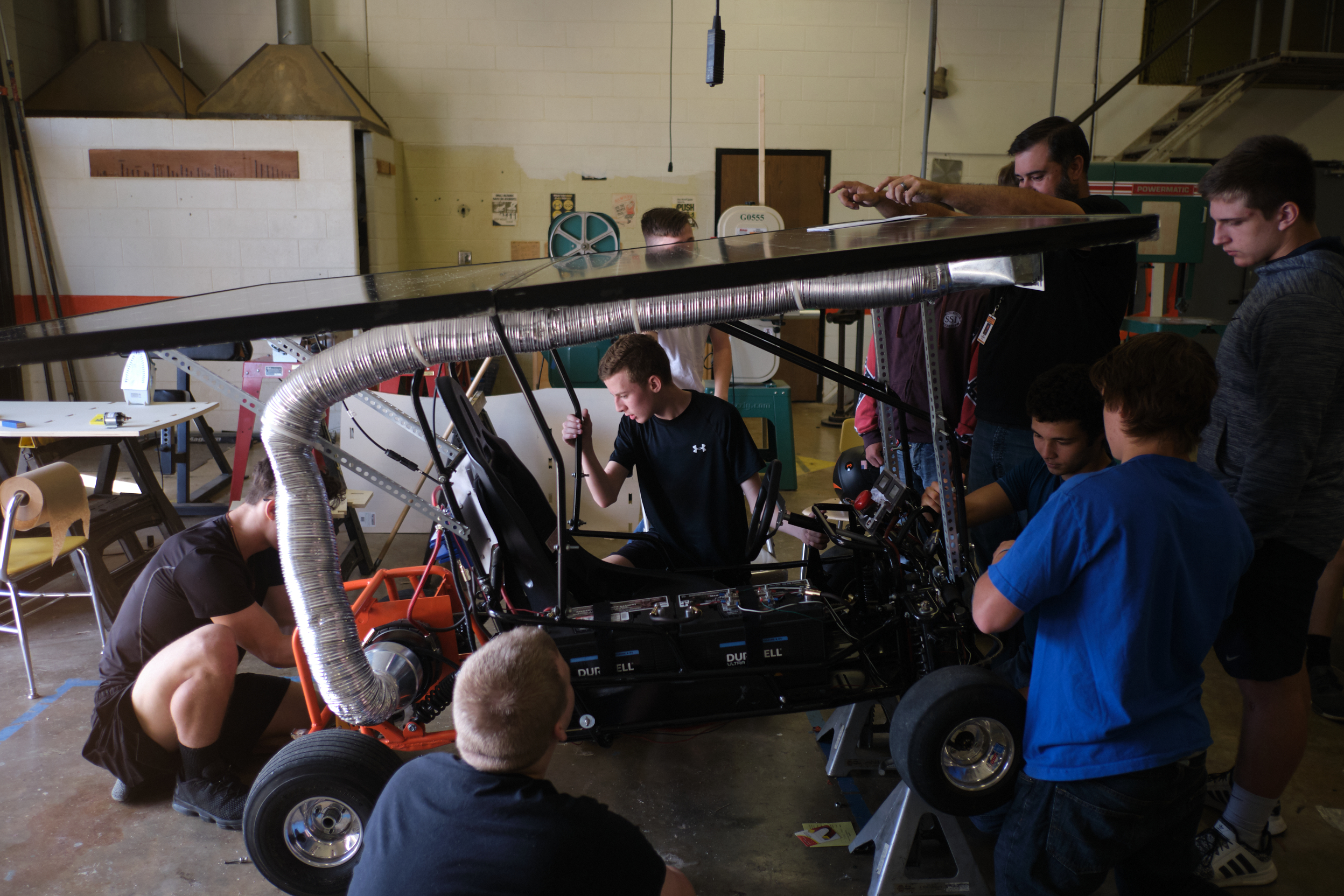
Student Outcomes
In 2022, EHS had an on-time graduation rate of 93 percent, higher than that of other high schools in Carter County and the state (83 and 90 percent, respectively). Elizabethton also had a higher 2022 graduation rate than the county and the state for nearly every student group for which the state reported data, including students from low-income families and students with disabilities.
The 2022 graduates had higher rates of proficiency on standardized assessments than their counterparts statewide in English, math, and social studies (e.g., 53 versus 44 percent meeting college-ready benchmarks in English on the ACT exam).
Among Elizabethton’s graduating seniors in 2022, more than half had already earned dual enrollment credits at local colleges and universities, according to XQ’s Senior Survey.
Learn More
See Elizabethton High- Tennessee High Schoolers Solved a Nearly 40-Year-Old Serial Murder Mystery
- How a Group of High School Students Helped Crack the ‘Redhead Murders’ Cold Case Decades Later
- Murder 101 podcast, about an Elizabethton class that solved a cold case
- 10 Cool & Powerful Ways to Inspire Teens to Self-Start, Learn in the Real World
- How Educators Transformed Their Tennessee School by Listening to Students
- Supporting Our Libraries: Insights from a High School Librarian
- How an Innovative High School Internship Led to a Job in Virtual Reality
- Elizabethton High School students reveal new research on 'red head murders' cases
- Here Are The Winners Of The NPR Student Podcast Challenge

